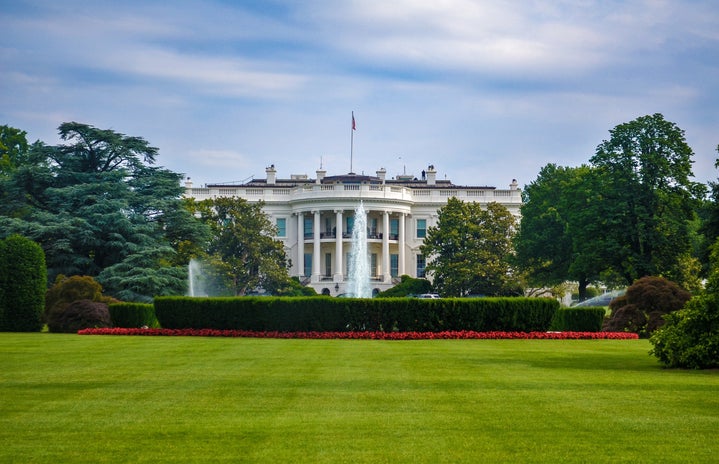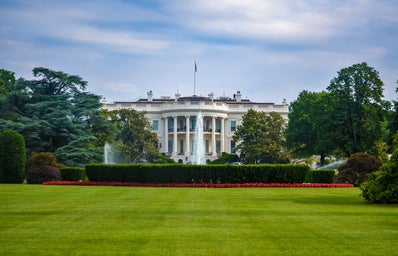I recently wrote an article entitled “Why We Care about Clinton’s Emails”. In the interest of a balanced treatment of this election’s candidates, we will look into a prominent issue surrounding Donald Trump’s campaign, that, if not equally relevant to national security, is at least equally scandalous: his tax returns.
Trump’s taxes. Why won’t he release them? Is it because he has something to hide? If you ask Hillary Clinton, that’s exactly what she’ll tell you. In fact, she did tell us during the first presidential debate on September 26th: “First, maybe he’s not as rich as he says he is. Second, maybe he’s not as charitable as he claims to be. Third, we don’t know all of his business dealings, but, we have been told through investigative reporting that he owes about $650 million dollars to Wall Street and foreign banks. Or maybe he doesn’t want the American people, all of you watching tonight, to know that he’s paid nothing in federal taxes.”
If you ask Trump, however, he’ll give you a couple of reasons. The first one is the “I’m under audit” excuse, meaning that, as he is currently under audit by the IRS, he cannot release his tax returns. (During the debate, this idea was presented partly as a dig at the IRS. Trump noted that he has been audited several times unlike his other wealthy friends, implying that the IRS has specifically targeted Trump. If true, it would suggest that government institutions in the U.S. such as the IRS are inherently opposed to and suspicious of the kind of financial success Trump claims to have achieved. This plays directly into Trump’s call for radical change of the U.S. institutional framework.) However, even as the September 26th debate moderator pointed out, and the IRS has confirmed, Trump’s being under audit has no impact on his ability to release his tax returns to the public.
The second thing Trump would do would be to direct your attention to his financial disclosure statement released in May of 2016. From the debate: “”You will learn more about Donald Trump by going down to the Federal Election Commission” and viewing the financial disclosure than you would by seeing the full tax returns. This financial disclosure is extensive, spanning over 104 pages and giving details on his assets, income, and liabilities (the document was also legally required of him). But after the debate, the fact-checkers at the Pulitzer Prize-winning organization PolitiFact “found little evidence to support Trump’s argument that the financial disclosure allows observers to ‘learn more’ than they would from a tax form. Tax filings include additional financial information that are not found on other financial disclosures”, namely Trump’s tax rate and actual taxes paid to the federal government.
Recent developments have only casts more negative light on Trump. One October 1st the New York Times published a few pages of Trump’s tax returns from 1995, the authenticity of which was soon confirmed by Trump’s own longtime lawyer and tax preparer Jack Mitnik.
Tax code and real estate experts consulted by the Times jumped on analysis of the document, concluding from the handful of pages that, based on his losses of $916 million on projects reported that year and current tax codes, he could have legally avoided paying federal income taxes for the next 18 years.
Now, does finding loopholes in the tax code so that he could avoid paying income tax just “make [Trump] smart”, as he claimed during the debate? Maybe. And could serve as a way to attack Clinton, given that the status-quo establishment she represents (in the eyes of some voters) created the current tax system. Trump has claimed to “know the tax code better than anyone” meaning that he is the “only one who knows how to fix it”, once again pulling back his claim that the U.S. is in desperate need of change.
However, even if finding legal ways to skirt taxes makes Trump smart, it also conflicts with core values held by many Americans, namely that you should work hard and honestly and pay your share of taxes to the government, for the benefit of society.
Throughout his campaign, Trump has played himself up to be a businessman that is not only successful, ambitious, and smart, but honest and hardworking – a “self-made man”. Thanks to the developments around his taxes and other false claims he’s made about the nature of his business empire, the “honest and hardworking” as well as the “self-made” parts of this claim are looking less and less likely.
Sources:
- http://www.nytimes.com/2016/10/02/us/politics/donald-trump-taxes.html
- http://www.nytimes.com/interactive/2016/10/01/us/politics/donald-trump-taxes.html
- http://www.nytimes.com/interactive/2016/05/18/us/politics/trump-financial-disclosure.html
- http://www.wsj.com/articles/disclosure-form-details-donald-trumps-income-sources-1463614927
- http://www.politifact.com/truth-o-meter/article/2016/sep/27/trump-clinton-first-debate-fact-checks/
Further Reading:
- http://www.nytimes.com/interactive/2016/10/07/us/elections/donald-trump-tax-advantages-deductions-losses.html
- https://www.washingtonpost.com/news/fact-checker/wp/2016/03/03/trumps-false-claim-he-built-his-empire-with-a-small-loan-from-his-father/
- https://www.washingtonpost.com/news/post-politics/wp/2016/10/03/after-trumps-tax-return-leak-clinton-accuses-him-of-protecting-a-rigged-system/

